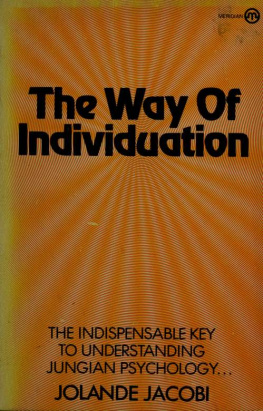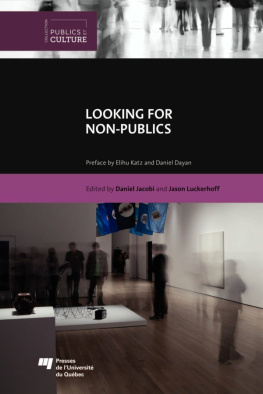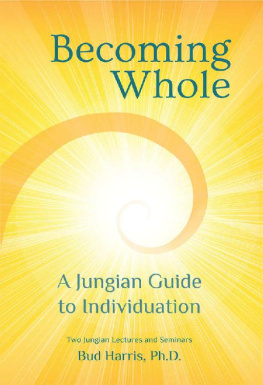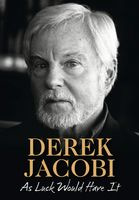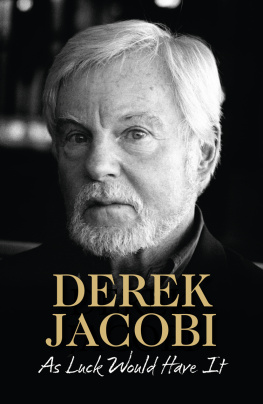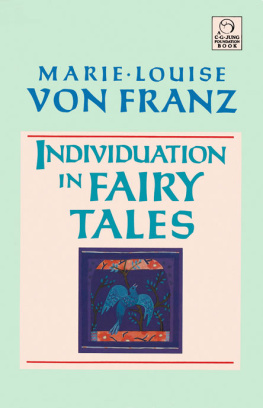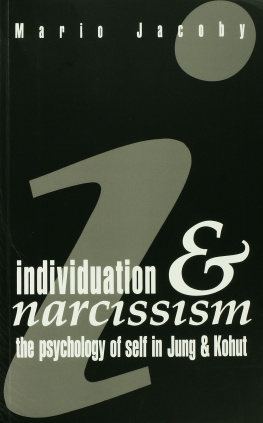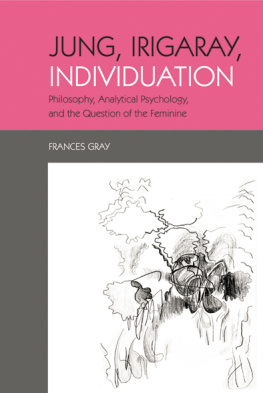Jolande Jacobi - Way of Individuation
Here you can read online Jolande Jacobi - Way of Individuation full text of the book (entire story) in english for free. Download pdf and epub, get meaning, cover and reviews about this ebook. year: 1983, publisher: Plume, genre: Religion. Description of the work, (preface) as well as reviews are available. Best literature library LitArk.com created for fans of good reading and offers a wide selection of genres:
Romance novel
Science fiction
Adventure
Detective
Science
History
Home and family
Prose
Art
Politics
Computer
Non-fiction
Religion
Business
Children
Humor
Choose a favorite category and find really read worthwhile books. Enjoy immersion in the world of imagination, feel the emotions of the characters or learn something new for yourself, make an fascinating discovery.
- Book:Way of Individuation
- Author:
- Publisher:Plume
- Genre:
- Year:1983
- Rating:4 / 5
- Favourites:Add to favourites
- Your mark:
- 80
- 1
- 2
- 3
- 4
- 5
Way of Individuation: summary, description and annotation
We offer to read an annotation, description, summary or preface (depends on what the author of the book "Way of Individuation" wrote himself). If you haven't found the necessary information about the book — write in the comments, we will try to find it.
Way of Individuation — read online for free the complete book (whole text) full work
Below is the text of the book, divided by pages. System saving the place of the last page read, allows you to conveniently read the book "Way of Individuation" online for free, without having to search again every time where you left off. Put a bookmark, and you can go to the page where you finished reading at any time.
Font size:
Interval:
Bookmark:

This book made available by the Internet Archive.




This book is dedicated to my grandson Christian, for his life's journey
PREFACE
I
n a letter to me dated 24 September 1948 Jung wrote: "The systematic elaboration of my ideas, which were often just thrown out, is a task for those who come after me, and unless it is accomplished there will be no progress in the science of analytical psychology." This statement was a challenge I have tried to meet, to the best of my knowledge and ability, with this little book as a modest contribution to Jung's expectations. It is the product of many years of reflection and observation, of careful study, of quiet hours of meditation and, not least, of personal and practical experience. The way of individuation as the keystone of Jung's widely ramifying work is particularly suited to signalize the position which distinguishes it from other schools of psychology. It amounts to a comprehensive view of life which embraces the all-too-human as well as the personal and the suprapersonal. Individuation, understood as the growing self-awareness of the individual and society, and expressed also in the transformation of man's idea of God in correspondence with the ruling state of consciousness, is a social, ethical, and religious problem which is more important for us than ever today if we are not only to endure the present but also shape a better future. Yet, precisely because Jung's concept of individuation is so interwoven with the many-sidedness of human existence, it has often been mis
understood or, more often, not understood at all. The methodical clarification of this centrepiece of Jungian psychology, which is of the greatest significance not only in psychotherapy but also as the goal of human development in general, therefore seemed urgently called for. It was a task I had much at heart, moreover, as the confession of a life rich in experience. Much of the joy and sorrow of a long life was built into it and applied to the supplementing and rounding out of Jung's ideas.
If, nevertheless, certain things could not be brought into clear enough focus, and others have still remained dark to logical, rational thinking, I would, by way of exonerating myself, quote Jung's own words, in which he points out the difficulties of presenting such a theme. In his memoirs he says: "The reality of life, with all its abysses and terrors, its unpredictable qualities, cannot be covered by so-called 'clear concepts.' " And again: "I strive quite consciously and deliberately for ambiguity of expression, because it is superior to singleness of meaning and reflects the nature of life. My whole temperament inclines me to be very unequivocal indeed. That is not difficult, but it would be at the cost of truth." At the same time he emphasized that he "took great care to try to understand every single image, every item of my psychic inventory, and to classify them scientificallyso far as this was possible."
As a creative person, as an artist, one might say, Jung was conditioned through and through by spiritual forces and open to their influences. But as a man of science, to whose requirements he felt the deepest obligations, all his efforts were directed towards systematizing his experiences and ideas and expressing them in the clearest possible concepts. The present book could not ignore this dual nature of Jung's work, and it must therefore appeal to the goodwill not only of those who devote themselves to understanding both these realms, but also to the devotees of the rational and of the irrational.
In the preparation of the book I am indebted for much help to the editor and faithful recorder of Jung's memoirs, Frau Aniela Jaffe\ Dr. Josef Rudin read the text, with particular
attention to the religious aspects. Dr. Ernst Spengler and my son Andrew gave helpful support in correcting the manuscript and the proofs. To all I would like to express my warmest thanks.
Thus, not without inward emotion, and mindful of the necessary inadequacy of my work, I set forth on this exacting theme: habent sua fata libelli. Let it fare as fate wills.
JOLANDE JACOBI
Zurich, summer 1965
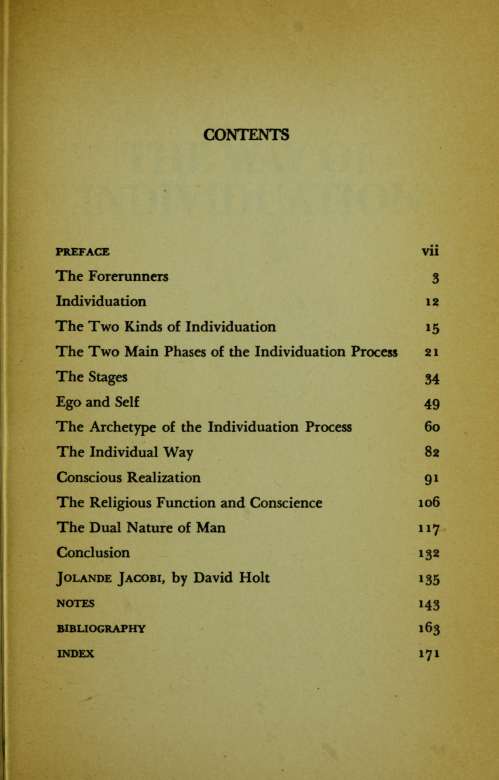
THE WAY OF INDIVIDUATION
The Forerunners
rue scientific knowledge does not consist only in answering the question of the What. It reaches fulfilment only when it is able to discover the Whence and to combine it with the Whither. Knowing becomes understanding only when it embraces the beginning, the continuation, and the end."
These words of J. J. Bachofen (1815-1887), C. G. Jung's great countryman, taken from the introduction to his book Mutterrecht (1861), might serve as a motto for that unitary, teleological view of the psyche from which is also derived Jung's concept of the "individuation process". They anticipate by some eighty years an attitude which, after the atomistic, mechanistic views of the late nineteenth century had been superseded, moulded the vision of the homogeneity of all psychic events. Basic to this attitude was the idea that psychic life should be regarded as a meaningfully ordered process containing its goal within itself. Ever since the broad sweep of the Romantic view of the world, with its feeling for the unity of life, this vision has never quite been lost. We meet it already in C. G. Carus (1789-1869), in whose work we find many features that have an affinity with Jung's ideas. Thus R. Marx writes in the introduction to Carus' Psyche (1846): "Indeed, looking at life more closely, we see that in its continuous striving there must remain present a feeling, an unconscious memory of what
was present before, otherwise it would be inexplicable how, at the peak of development, after passing through many phases, something can come back again formed in exactly the same way as the germ from which the development started (e.g., the egg or the seed); and again, we perceive that there must dwell within it a definite, even though unconscious foreknowledge of whither its course of development is tending and what it is seeking, otherwise the sure progress, the regular preparation of numerous phenomena that in themselves can only be transitional phases, and that subordinate themselves to ever higher aims, would be wholly inexplicable." * In these sentences we cannot but hear a spiritual note struck which also echoes in Jung's writings.
With the endeavours to understand personal development as a goal-directed unfolding and organization of innate tendencies and dispositions, there arose in the nineteenth century a number of psychological theories which treated the subject in all sorts of variations; there were, for instance, a deterministic, a vitalistic, a personalistic, a developmental, a genetic, a Gestalt psychology, among others. They are associated primarily with the names of W. Wundt, F. Krger, K. Koffka, W. Stern, Charlotte and K. Bhler, E. Spranger, and many more besides. It would, however, be wrong to regard the view which sees life as a unity, even though with various sub-divisions, as an invention of scientific psychology.
Font size:
Interval:
Bookmark:
Similar books «Way of Individuation»
Look at similar books to Way of Individuation. We have selected literature similar in name and meaning in the hope of providing readers with more options to find new, interesting, not yet read works.
Discussion, reviews of the book Way of Individuation and just readers' own opinions. Leave your comments, write what you think about the work, its meaning or the main characters. Specify what exactly you liked and what you didn't like, and why you think so.

